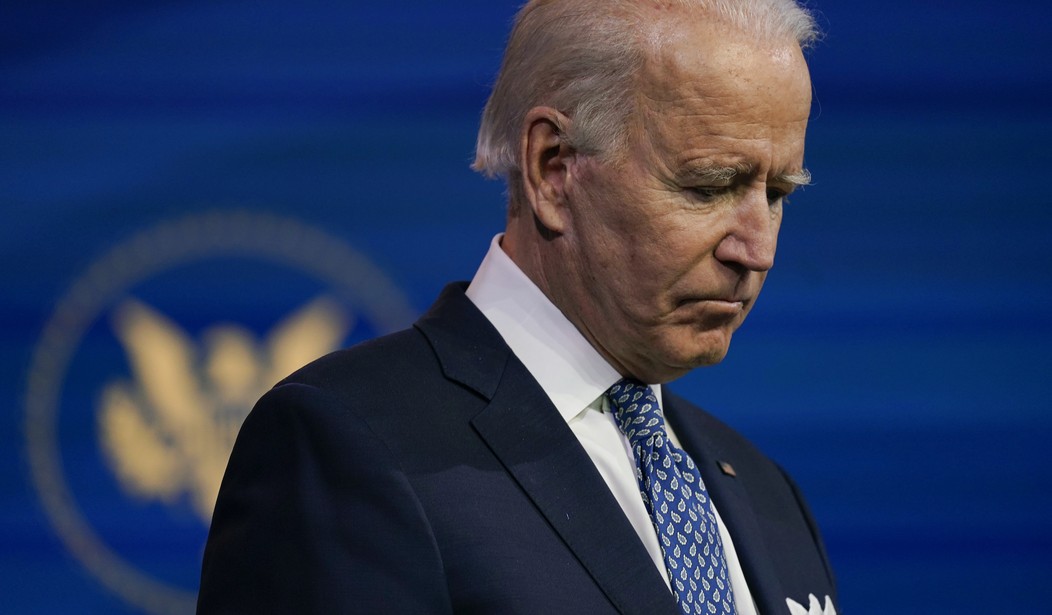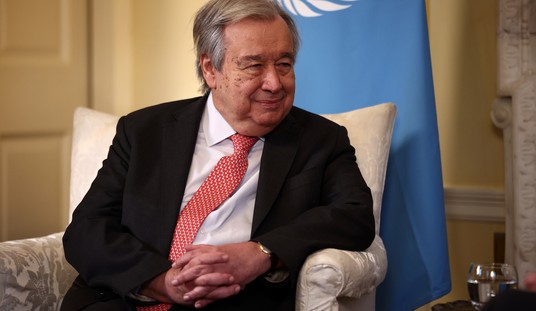The exodus from Kabul is absorbing American press coverage to the point where there are very few other stories bubbling near the top of our news feeds. And that means that there’s plenty of room for not only analysis and opinions of the situation, but analysis and opinions of the analysis and opinions being generated. An interesting example of this phenomenon popped up today at The Hill under the byline of Joe Ferullo. Observing the various headlines making the rounds about the collapse of the Afghan government and the fall of Kabul to the Taliban, Ferullo grows despondent, referring to the “Beltway reporting” on this story as “a disservice to Americans.” And that, the author explains, is the primary problem with the aforementioned Beltway reporting. Reporters quickly make every story about Washington politics rather than the underlying substance of the story. (Presumably, Joe Ferulla is immune to this syndrome, being based in Los Angeles and therefore far more grounded in the media consumption needs of the heartland.)
So what’s wrong with the reporting we’ve been seeing in the past three days? According to the author, everyone covering the story is framing the collapse of the government of Afghanistan in terms of how it will impact Joe Biden. He assembles a rather lengthy list of headlines and cable news chyrons as evidence. These include descriptions of how Joe Biden now faces “political peril,” as well as how this will all result in a “grim reckoning” for the President. He notes a cable news chyron blaring, “Afghanistan’s Rapid Unravelling Threatens Biden’s Legacy.”
What the author sees as missing from this coverage is the voice of the aforementioned little people of the heartland. Why aren’t we hearing what they think about this debacle?
It’s undeniable that the circumstances in Afghanistan have deteriorated much more quickly than the administration anticipated — or, at least, that it wanted to discuss publicly. But two main questions were left under-examined as the political media rushed to do what it too-often does: Find a simple D.C.-centric story thread and race to repeat it.
The most important issue: What do the American people want? Reports from outside the Beltway, looking for voter reaction, have been rare. But recent polling makes the answer clear. In one April survey, 73 percent of respondents approved of Biden’s plan to withdraw from Afghanistan. As late as last month, polls showed 57 percent supported ending the war.
The second problem Ferullo points to is the fact that everyone is asking how the Taliban managed to take over the country and the capital so rapidly, but they’re all missing the real reason. It wasn’t Joe Biden’s “fall of Saigon moment.” The Afghan government collapsed because it had failed to gain the popular support of the people.
That comparison actually rings true — but not for the reasons most journalists have settled on. With the passage of time, it became clear that, in large part, South Vietnam fell so quickly because its government simply did not have the support of its people. America’s military presence in Vietnam — over the course of nearly 20 years and 58,000 U.S. combat deaths — was unable to build a political infrastructure that citizens could trust.
After that war, the idea of “nation-building” was tossed on the foreign policy trash heap.
It’s difficult to even know what to do with all of this or where to begin. But let’s start with the idea that “Beltway reporting” is ignoring the underlying story and fixating on politics. There’s certainly some of that going on, but we’re talking about people who dissect politics for a living. That’s their beat. But it’s not as if there’s a paucity of actual news coverage. There are wall-to-wall stories delivering the details of activities at the airport and the embassy in every newspaper. CNN has had Clarissa Ward on the streets of the capital interviewing everyone from women’s rights activists and soldiers to actual Taliban fighters for so long I think her face is burned into the screen of my television.
Further, how can you talk about the fall of Kabul in a vacuum and not discuss the impact this fiasco might have on the President? The other job Joe Biden holds in addition to being President of the United States is Commander in Chief. Biden is, for better or worse, a war president. He asked for the job. Nobody forced him to take it. And his biggest military responsibility and challenge thus far has been to get us out of Afghanistan. Ferullo points to polls showing that a majority of Americans are still in favor of ending the war in Afghanistan. I’m sure that’s true, but it’s not just if he ends the war and brings the troops home, but how he does it. And thus far the results appear to be speaking for themselves. As a comparison, consider the following. If I’m bothered by my dog having matted hair on her paws and call your pet grooming service and you show up and amputate the dog’s legs, you may have addressed the problem, but you sill won’t be getting a five-star review on Yelp.
We’re getting plenty of in-depth coverage of the fall of Kabul and our (hopefully successful) exit. Some might say too much to the point of being overwhelming. On top of that, political and tactical analysis and opinions abound. Perhaps what the author is truly unhappy about is the idea that a botched withdrawal will negatively impact Joe Biden’s approval ratings as we approach another midterm cycle. It’s a valid concern for Democrats as two new polls out this week demonstrate. But the fault doesn’t lie with the reporters covering the story. It lies with the story itself.








Join the conversation as a VIP Member